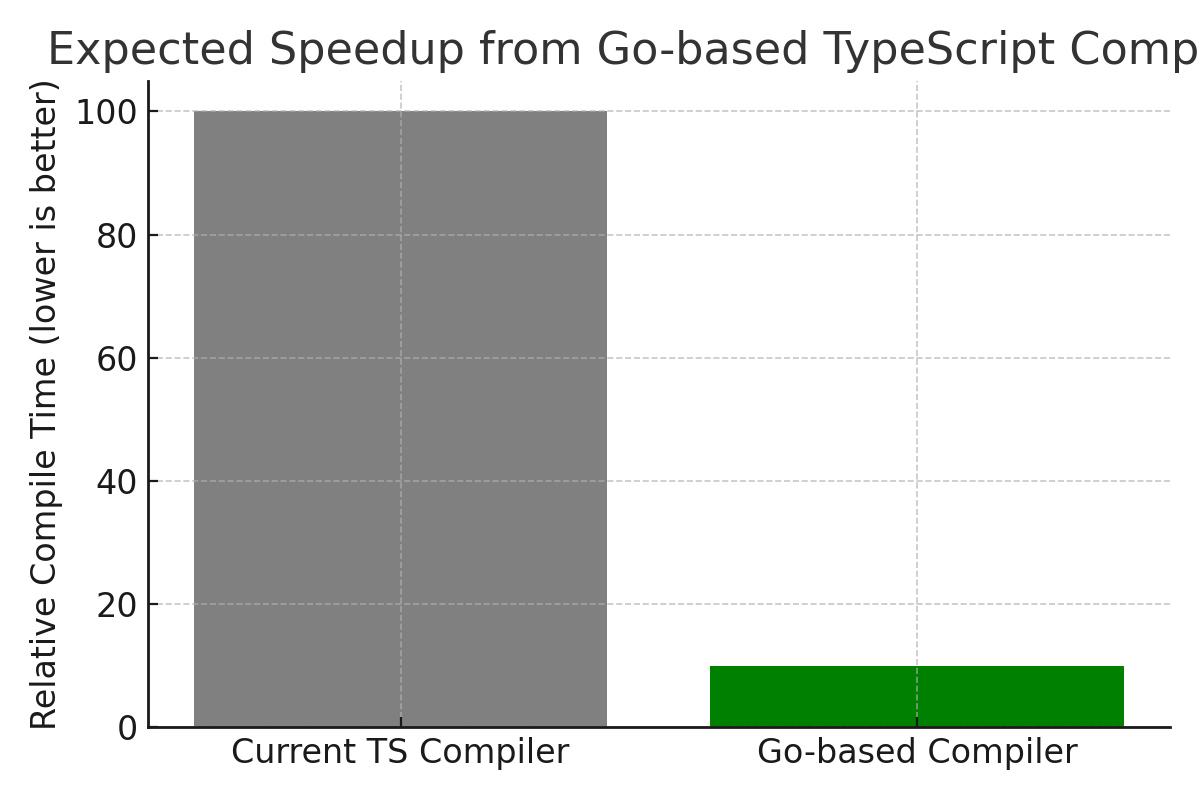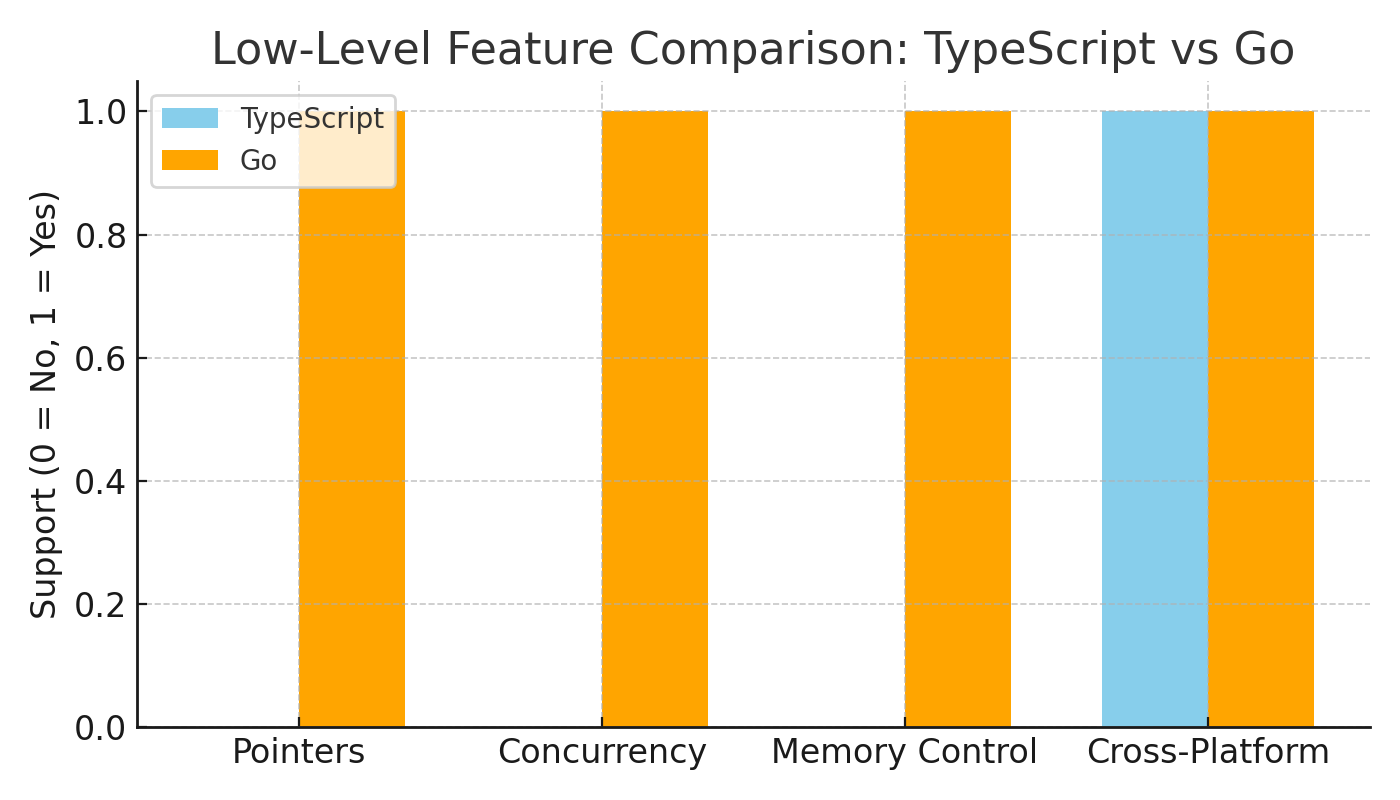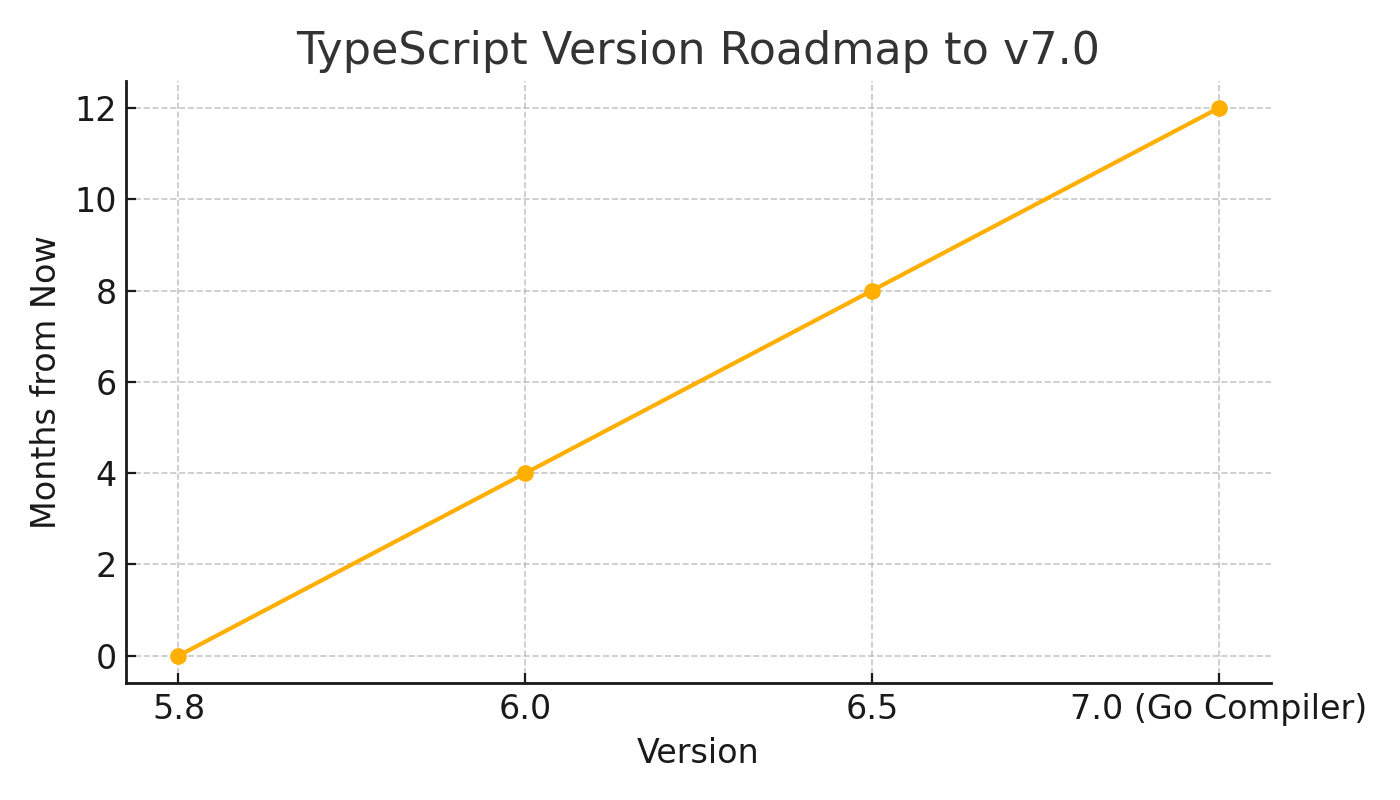TypeScript’s Compiler is Being Rewritten in Go – Here’s Why That’s Huge
TypeScript is changing its compiler — and it’s not just a refactor. It’s a full-on rewrite... in Go.
Yes, Go, the programming language developed by Google.
Yes, TypeScript, a language owned by Microsoft.
And yes, your brain is correct — those two companies have been rivals for decades. And yet... here we are.
Wait, What’s Happening?
Currently, the TypeScript compiler is written in TypeScript itself.
That sounds poetic, but it’s not exactly ideal — TypeScript isn’t designed to be a low-level systems language.
The TS compiler works by transpiling your code into JavaScript, which can then run in Node.js or browsers. But since TS lacks low-level features like pointers or direct memory control, it hits performance limits in massive codebases.
So Microsoft made a wild (and smart) move:
They’re rewriting the entire compiler in Go — line-by-line.
But... Go is Google’s Language?
Exactly.
This might be the most mature move we’ve seen in dev toolchains in a while.
Instead of reinventing the wheel or trying to force C# into the workflow, Microsoft just said:
“Let’s use the best tool for the job.”
And right now, that tool is Go.
Why This Matters
🔥 Performance
Microsoft claims the new Go-based compiler will be 10× faster across many platforms.

That means:
- Errors will show up faster
- Type-checking will be snappier
- CI/CD pipelines could run smoother
- And you? You’ll become a 10× developer (at least spiritually 😅)
⚙️ Low-Level Power
With Go, TypeScript’s internals gain access to:
- Pointers
- Concurrent processing
- Better memory handling
- Low-level optimizations

Something that TypeScript (the language) simply wasn’t built for.
Will Anything Change for Me as a Dev?
Nope — and that’s the beauty of it.
The language, syntax, and behavior of TypeScript will remain exactly the same.
It’s just the engine underneath that’s changing.
You write .ts like you always have. The compiler just runs a whole lot faster.
The Only Catch...
This shift won’t go live until TypeScript 7.0 — we’re currently on version 5.8, and Microsoft says nothing will change until then.

So you’ll need to wait another 10–12 months before becoming a Go-powered TS warrior.
Final Thoughts
I’m genuinely hyped for this.
A compiler that runs faster, errors that show up quicker, and a Microsoft that puts rivalry aside to make devs’ lives better?
That’s the kind of upgrade I’m always down for.
Let’s go, TypeScript.
Let’s go, Go.
Let’s go... be 10× developers 🚀
